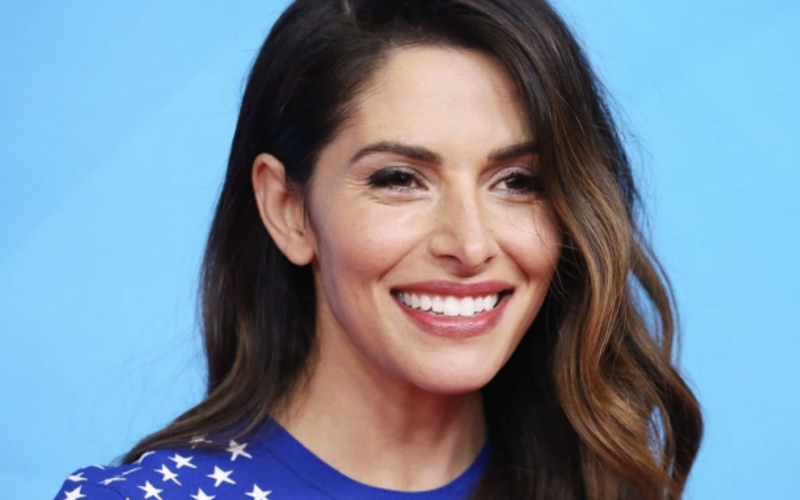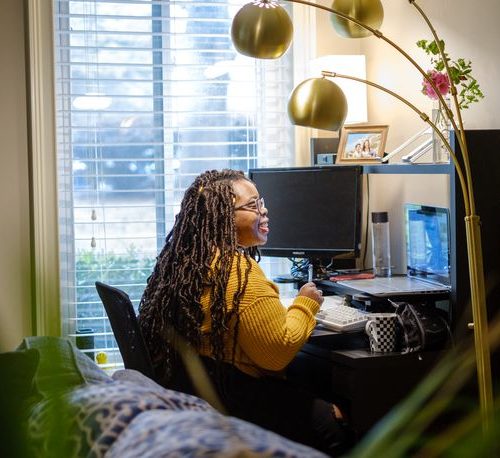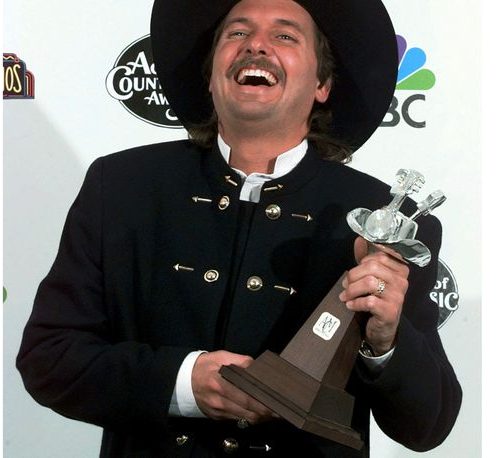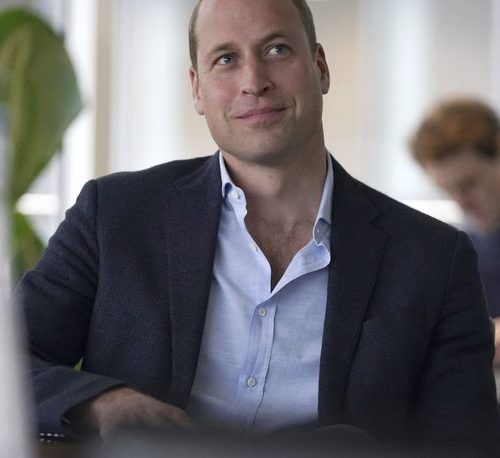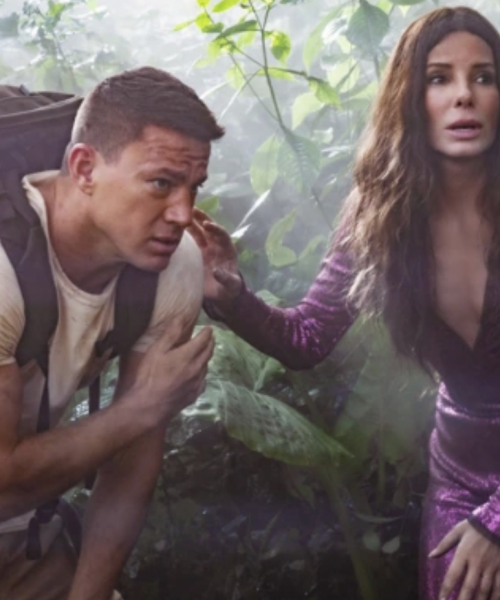BY BRIAN DAVIDS | HollywoodReporter.Com
Troy Warren for CNT
The actor talks the female gaze of her Netflix show and working with Dwayne Johnson as “a freedom fighter that’s leading this big resistance against an evil, malicious group.”
After 20 years of film and television work, Sarah Shahi returns to the small screen in her most “risqué” project yet — Netflix’s Sex/Life. Shahi plays Billie Connelly, a young mother and housewife who yearns for her past life to such a degree that she begins to test her marriage and friendships in the process. Created by Stacy Rukeyser, Sex/Lifeis told through a woman’s perspective in more ways than one as each episode is helmed by a woman director. Thus, Shahi was intrigued by the elaborate sex scenes that focused on the woman’s point of view for a change.
“Well, to be totally honest with you, I was a bit scared and a bit turned on at the same time,” Shahi tells The Hollywood Reporter. “Emotionally, I was going to have to go to some pretty raw, vulnerable places that I hadn’t had the opportunity to do on screen before, and physically, it was a very revealing side of myself. The camera certainly lingers on the men for a couple seconds longer than it lingers on me. And a lot of times, sex scenes are compliant to whatever it is that the male wants, but this time, it’s the other way around. So Billie is the one who’s getting serviced by the men in ways that stimulate her and make her happy.”
Shahi is also about to wrap her biggest film role to date as she stars alongside Dwayne Johnson in DC and Warners’ Black Adam. Since the story of Black Adam is tied to the Middle East, Shahi hopes that the film can create more meaningful representation for her fellow Middle Eastern actors.
“I play a character named Adrianna, and she’s a freedom fighter that’s leading this big resistance against an evil, malicious group called Intergang,” Shahi shares. “I’m Middle Eastern; I’m Persian. And there’s not a lot of Middle Eastern representation out there… There are other Middle Eastern actors that I know who are either getting cast in terrorist roles or they’re really being stereotyped by how they look. So I’m hoping that, on some level, Black Adam will help break open that stereotype.”
In a recent conversation with THR, Shahi also looks back at her experience on The Sopranoswith James Gandolfini and the practical tips she learned from him. She also explains why she’s excited to share Black Adam with her three kids.
You’ve made television on broadcast networks, basic cable, premium cable, etc. What advantages does Netflix have over the others that people may not realize?
Well, it just seems like we can be so much more risqué. We can tap into these psychological discussions about love, relationships, children and just these sort of human philosophies in a much deeper way than you’re allowed to on broadcast.
Since broadcast networks often leave you twisting in the wind, is it comforting to know how many episodes you’ll shoot in a given season?
Oh yeah, for sure. On network television, sometimes they’ll order maybe three or four episodes to see how it does, and then they’ll order the rest. But on this one, you have eight scripts before you even begin, so it’s definitely a comfort knowing you’ll at least shoot all eight.

I really related to the underlying theme of Sex/Life and how someone can feel unfulfilled despite having the life they always envisioned. Did you identify with this idea as well?
Yeah, I’m a mother of three amazing children myself, and I’ve been in long term relationships in the past. And I think this is something that everyone can relate to regardless of what walk of life you come from. You always kind of wonder, “Well, what would’ve happened if I had taken that left-hand turn instead of the right? What direction would my life have gone in?” And as far as Billie goes and the ways in which I related to her, she has an appetite for life that’s larger than Texas. (Laughs.) On paper, she’s supposed to be happy with everything that she has, but she just wants more. And I understand what that means to be told, “Well, hey, you have it all and you should be happy,” but there’s something in you that’s just reaching for things that are bigger, brighter and more outside yourself.
What ran through your mind as you first read the script?
Well, to be totally honest with you, I was a bit scared and a bit turned on at the same time. (Laughs.) It was a very risqué project in a lot of ways. Emotionally, I was going to have to go to some pretty raw, vulnerable places that I hadn’t had the opportunity to do on screen before, and physically, it was a very revealing side of myself. But more so than that, it was a super-cool opportunity to just be a part of something that’s so women-driven. It was written mostly by women writers, and every episode was directed by a woman. We also have a woman showrunner. So to be able to tell Billie’s story from such a broad female perspective was really cool. And a lot of times, when you have female sexuality on screen, it’s portrayed through the male POV, but this time, we really put it on its head by portraying everything through the female gaze. So I thought that was just something that was so important to be a part of.
Yeah, you can really recognize the female perspective because the camera lingers on the male body in a manner that’s typically reserved for the female body.
Yes, you took the words right out of my mouth. The camera certainly lingers on the men for a couple seconds longer than it lingers on me. And a lot of times, sex scenes are compliant to whatever it is that the male wants, but this time, it’s the other way around. So Billie is the one who’s getting serviced by the men in ways that stimulate her and make her happy. And it goes to show that women can be stimulated in a lot more ways than just missionary. (Laughs.)

What’s your process for developing a character like Billie? What’s the first step, usually?
Well, I have a coach that I work with, and the way I look at acting is that it’s almost like jazz. In my opinion, it’s the space in between the words that make for a really good scene. So it’s really just understanding the subtext of Billie, and sometimes, what’s on the page is the last thing that I want to play. I want to play everything that’s not on the page. So it’s like looking at a puzzle or a painting and just figuring out what piece of the puzzle goes in this hole in order for me to create this puzzle.
You also had to come up with an approach to Billie’s voiceover when she’s writing in her journal, and that voice is rather unique from how she normally speaks. Does your own internal monologue compare at all?
Oh gosh. My internal monologue is all over the place. It just depends on what demon is controlling me that day. (Laughs.) But in terms of Billie, I wanted the voiceover to feel like I was speaking to my best friends. I wanted the audience to be my confidants. I wanted the audience to feel the history of knowing Billie. Her story is something that’s so universal, and I wanted everyone to be able to relate. And when crafting the warmth and the intimacy of her voice, those were the things that I thought of whenever we were recording the voiceover.
Well, congratulations on Black Adam. Was it an exhaustive casting process?
You know what? I actually tanked the audition for Sex/Life, and I had to put myself on tape five times. So Sex/Life was probably the hardest casting process I’ve ever been in, whereas Black Adam was the easiest casting process. The universe definitely gave me a little kiss on the cheek when I got this one. While I was filming Sex/Life, I put myself on tape in Toronto for a movie I knew nothing about; I didn’t even know the title of it. So I auditioned with two very nondescript scenes, and then the world shut down. So the next thing I knew, I got a phone call, saying, “Remember that movie you went out on?” and I couldn’t really remember because it was a couple of months after I auditioned. But they said, “Well, they want to meet with you, and it’s this project called Black Adam with Dwayne Johnson.” And it just sounded so surreal. It sounded like I was being pranked or something. It just didn’t sound real.
How was the news delivered to you?
I don’t have Aldis’ [Hodge] story by the way; his story is very cool. But around May or so of last year is when I got the news, as my little area of Sherman Oaks had just opened up. And my agent called me and told me that I had gotten the part. There were rumors of me getting the part for a few months, and it was kind of exhausting, having your life being pulled in so many different directions and not knowing if it was real or not. But finally, I just asked my agent, and I was like, “Can I please tell my mom?” And he was like, “Yes, tell your mom. It’s official.”
I believe your character is named Adrianna. Generally speaking, can you offer a description of her?
Yes, I play a character named Adrianna, and she’s a freedom fighter that’s leading this big resistance against an evil, malicious group called Intergang.
What’s the vibe of the set like?
It’s a fun set. It’s a much different thing being a part of a big blockbuster movie and then shooting a TV show. You move much slower. But the sets and the locations are just out of this world; it’s make-believe to the nth degree. I had a moment the other day on set where I was just pinching myself; it was unreal. This is the whole reason why I got into this business.
Have you stepped foot inside Dwayne’s traveling gym while he and Aldis go to town?
(Laughs.) No, I haven’t! I’m leaving all of the heavy lifting to those guys.
I realize this is an incredibly broad question, but what does this role mean to you overall?
Well, it’s a big deal for a lot of reasons. I’m getting the chance to work with Dwayne, who happens to be one of the kindest humans ever. And it’s admirable to watch him be the businessman and the actor that he is. He treats everybody on set so well. When he speaks to you, it’s like you’re the only person in the room. Everyone should take a lesson from his book because he’s quite remarkable to witness and to be on set with. He’s the real deal, through and through. So not only is it cool for that, but I’m Middle Eastern; I’m Persian. And there’s not a lot of Middle Eastern representation out there, so being in a movie like this really helps make a statement for my culture and where I come from. There are other Middle Eastern actors that I know who are either getting cast in terrorist roles or they’re really being stereotyped by how they look. So I’m hoping that, on some level, Black Adam will help break open that stereotype. And hopefully, Hollywood will become more colorblind in a way, and will open itself up to more Middle Eastern actors and storylines. And on top of that, this is the first thing I’ve been a part of that my kids can actually watch. (Laughs.) So that’s nice.
When an actor or filmmaker commits to a project, I think the audience tends to overlook the influence of their children.
Yeah, I have a daughter and two boys, and in this day and age, to be a woman and to play a role that’s not the finger-shaking girlfriend or the secretary is essential. And knowing that I can play a character like Adrianna — who’s incredibly tough, who’s a badass, who’s human but goes head to head with superheroes — is pretty important. And I think it sets a really great precedent, especially for the younger generation. At the end of my career, I would love for people to say, “She was a great actress,” but at the same time, what’s most important is being a great mother. So I always try to look at whatever it is I’m doing and say, “OK, if my kids watch this when they’re older or whenever it’s appropriate for them to watch, what is this going to say about their mom?” So if I’m able to impact them, then that just means the world to me.
Well, Shaw was a superhero in her own right…
Yes. (Laughs.)
Oddly enough, Person of Interest has the distinction of being the only CBS show that I’ve ever watched from start to finish.
Oh wow!
So what was the ultimate takeaway from that experience?
In the moment, I didn’t quite realize the impact that it would have because you’re just in the grind. You’re shooting 17-18 hours in New York City, and fighting all of the elements. It was tough to shoot that show, for sure. But looking back, I remember the number of messages that I would receive from other girls who picked Shaw as their Halloween costume — with the ponytail and the cute little bits of hair coming down her forehead — and they’d say that it was great to have her as inspiration. She was a chick who was able to be feminine, tough and badass. She could beat up the bad guys, ride a motorcycle, be completely free and really own those sides of herself. So that was incredibly flattering, and the fact that that character has lingered to this day just means so much to me. At the time, I didn’t realize how impactful she was, so it’s quite a compliment.
So this is random, but in 2006, someone gave me a few cases of Pinot Grigio. And a short while later, I vividly remember watching an episode (“Kennedy and Heidi”) of The Sopranos, and recognizing a bottle of the very wine I’d been gifted. A character named Sonya grabbed a bottle of it when Tony Soprano (James Gandolfini) paid her a visit in Las Vegas.
(Laughs.) Oh my God! That’s wild!
Well, lo and behold, my prep for this interview reminded me that you played Sonya. So what do you remember from those days on set with Gandolfini?
Oh my gosh. That’s amazing. You’ll have to send me the name of it. [Gandolfini] was incredible. The anniversary of his passing was just a couple weeks ago, and ironically, it coincided with the anniversary of my own father’s passing. But he was one of those guys, man. I learned a lot from him about acting. He was so present, whether he was on camera or off camera. A lot of times, actors, when they’re off camera, they use that opportunity to not give as much; or they just become a little bit lazy. But he was so present. It was like he had no awareness that we were actually rolling, and he didn’t want to know what the shot was. He did all of these little things to try to help himself stay in the moment constantly. There was a scene in which we had to either chew on mushrooms or swallow something [peyote]. I’m not sure exactly what they were, but he had the prop guys prepare these little bits of mushrooms that were cut up. And he had them put a lot of pepper on them because he wanted to have a reaction the moment the mushrooms hit his mouth. So he taught me these little nuances that no one had ever shown me before, and he was an incredible influence in my life. He was literally larger than life. He made an impact on me, and even though it was one episode, that will last a lifetime.
That’s an amazing story. And in case you’re still wondering, the wine was Santa Margherita Pinot Grigio.
(Laughs.) Santa Margherita Pinot Grigio. OK, great! That’s so funny. The world works in mysterious ways.
***
Sex/Life is currently streaming on Netflix.


























